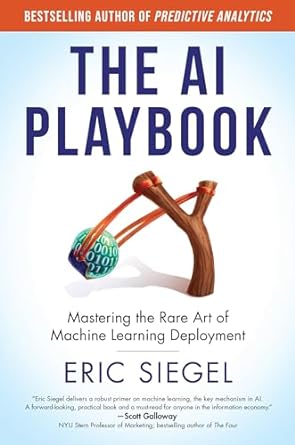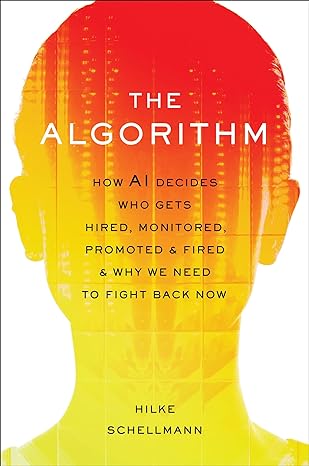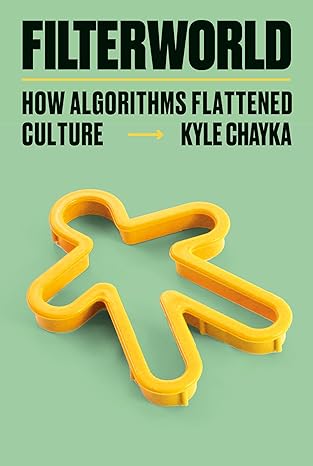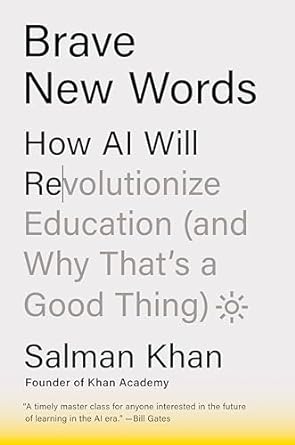
📖 Nexus
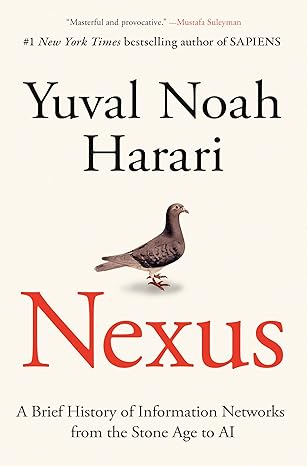
Author(s): Yuval Noah Harari
Published: 2024
Category: Technology (click to see more books)
🔰 Learn How To Read More Books, Learn More, Improve Productivity
⏱ Quick Read
Nexus: A Brief History of Information Networks From the Stone Age to AI by Yuval Noah Harari is a thought-provoking exploration of how information has shaped human civilization across millennia. Harari examines the evolution of communication networks, from early oral traditions to modern artificial intelligence, emphasizing how stories, documents, and algorithms have influenced politics, culture, and power structures. At its core, the book argues that while human societies have mastered the ability to accumulate and spread information, they often struggle to acquire wisdom. Harari warns that our increasing reliance on AI-driven networks risks creating systems beyond human control, which could push us to the margins of decision-making. The book also delves into the tension between truth-seeking and order-maintaining mechanisms, showing how both mythmaking and bureaucracy have shaped human societies. A key takeaway is the growing tension between human and algorithmic decision-making, with Harari raising concerns about the unchecked power of AI and its potential to shape major historical events.
"The essence of the AI revolution is that the world is being flooded by countless new powerful agents. We are in danger of losing control of our future."
– Yuval Noah Harari
🔑 Key Takeaways
- Information networks have shaped human societies from ancient oral traditions to modern AI systems.
- Human power stems from large-scale cooperation enabled by information, not individual brilliance or wisdom.
- Truth and fiction both play crucial roles in connecting people and maintaining societal networks.
- Mythmaking and bureaucracy have historically worked together to build and sustain large-scale societies.
- AI is not just a tool but an independent agent capable of making decisions and shaping the future.
- Human reliance on algorithms could lead to systems beyond our control, threatening global stability.
- Totalitarian regimes thrive on controlling information, and AI could supercharge such control.
- The rise of AI raises concerns about the erosion of human agency in critical decision-making processes.
- While more information often brings power, it doesn't always result in wisdom or better decision-making.
- The future of humanity depends on how we manage the power of new AI-driven information networks.
📝 Actionable Lessons
- Critically evaluate the information you consume and avoid blindly trusting algorithms or media narratives.
- Promote open discussions and transparency to counter the control of information by powerful networks.
- Stay informed about AI's development and its implications for society, privacy, and decision-making.
- Foster cooperation and collaboration in your community by sharing truthful and reliable information.
- Balance technological advancement with ethical considerations to ensure AI serves humanity, not controls it.
✒️ Author Snapshot
Yuval Noah Harari is a historian, philosopher, and bestselling author known for exploring humanity's past, present, and future. His works, including Sapiens, Homo Deus, and 21 Lessons for the 21st Century, focus on how technological advancements, particularly AI, shape society, politics, and human evolution.
📡 Latest posts from category
- nexus (The Rise of AI and the Future of Human Control Over Information)
- The Four (How Four Tech Giants Are Changing the World Forever)
- Brave New Words (Transform Your Learning with AI)
- Filterworld (Is Technology Destroying Our Creative Expression and Individuality?)
- The Algorithm (How Algorithms Decide Your Job Fate)
📧 Sign up for our Knowledge Unlocked newsletter and be the first to read our new book summaries.




